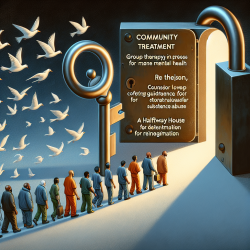As speech-language pathologists (SLPs) working within school settings, we constantly seek effective assessment and intervention strategies to support our students' language development. The research article "Narrative and Expository Language: A Criterion-based Assessment Procedure for School-age Children" by Teresa Ukrainetz McFadden offers valuable insights into addressing this need, particularly for students with language-learning disabilities.
McFadden's study highlights the importance of discourse abilities in the intervention practice of school SLPs. Despite the critical role of narrative and expository language in academic success, there is a scarcity of standardized tests or procedures to assist SLPs in assessing these areas. This gap necessitates the development of alternative, criterion-based assessment tools to effectively target narrative, meta-narrative, and expository language goals.
Narrative vs. Expository Language
The paper delineates between narrative and expository discourse, two pivotal elements of language use. Narratives, often seen as a bridge between oral language used in social interactions and the literate language of academic settings, require the speaker to produce extended monologues. Expository language, or instructional discourse, is used for planning and transmitting logic-based knowledge, a key component in academic success beyond the primary years.
Assessment and Intervention Strategies
McFadden proposes a comprehensive assessment package that covers narrative, meta-narrative, and expository language. This approach is designed to directly inform intervention strategies, offering a practical tool for SLPs. The assessment focuses on story grammar, narrative coherence, and the ability to organize and sequence information, among other criteria. These elements are essential for effective communication and academic performance, particularly in writing and reading comprehension.
Implementing McFadden's assessment procedure in school settings can significantly enhance our understanding of students' discourse abilities. By identifying specific areas of need, SLPs can tailor interventions to support narrative and expository language development, thereby improving students' overall academic outcomes.
Encouraging Further Research and Application
While McFadden's work provides a solid foundation, it also underscores the need for further research and development in this area. As practitioners, we should continue to explore and validate assessment and intervention strategies for narrative and expository language. Engaging in ongoing professional development, through conferences, publications, and webinars, can help us stay abreast of the latest research findings and innovative practices.
Additionally, collaboration with educators and other professionals within the school setting is crucial. By working together, we can create a more integrated approach to supporting language development, ensuring that our interventions are aligned with classroom objectives and students' individual learning needs.
Conclusion
The assessment of narrative and expository language presents both challenges and opportunities for speech-language pathologists in school settings. McFadden's criterion-based assessment procedure offers a valuable tool for identifying students' strengths and needs in these critical areas of language development. By incorporating these assessment and intervention strategies into our practice, we can better support our students' communication skills and academic success.
To read the original research paper, please follow this link: Narrative and Expository Language: A Criterion-based Assessment Procedure for School-age Children.










